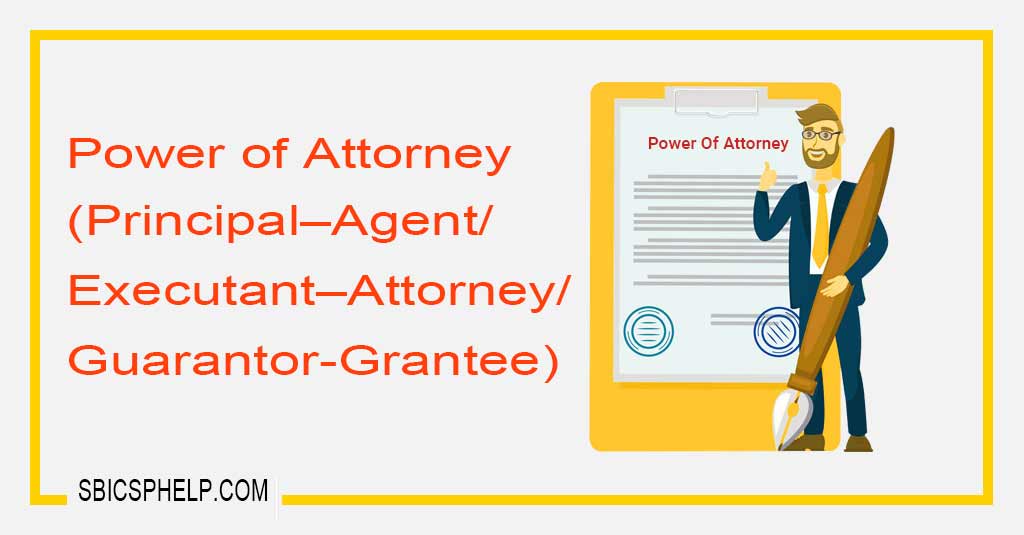What is Power of Attorney
(Principal–Agent/Executant–Attorney/Guarantor-Grantee)
Many business activities are running across the nation and abroad too. However,
it is commonly seen that a single person as an owner is unable to manage the
business related to important decisions making or documentation related.
Owner’s health issue, travel restrictions, being busy in any other business,
not being able to take decisions due to old age, etc are the probable reasons
for this. In such a situation, a single person can do his/her business by giving
special rights to another trust person under the legal provisions.
This special rights derived from legal provisions is called POA .
POA is given to a trusted person for the following purpose-
- Management of Funds
- Property and Estate Management
- Personal Care
Under the POA Act 1882, a person who has ownership rights
can declare any other person as his/her legal representative. A person who
is declared as a legal representative is called AGENT or ATTORNEY or GUARANTEE
and the person / owner who declares another person as a legal representative is
called PRINCIPAL or EXECUTANT or GUARANTOR.
The Power of Attorney is preparing on a stamp paper and then PRINCIPAL can get its legal validity from Notary or Government Administrative Officer as per requirements. After this, the agent can take any important decision under the execute Power of Attorney. But this does not mean that the agent can use Power of Attorney to take the decision arbitrarily and can cause loss to the Principal. The agent must work within the purview of his/her Power of Attorney, and these limitations are clearly mention on the Power of Attorney as Clause(s).
What are the types of Power of Attorney?
For effective management of Business Activities, POA is divide into two categories –
1) Special POA (GPA)
2) General POA (SPA)
Universalization of Elementary Education in India
The POA , given to an agent for completing a particular task,
is call Special POA. There is limit scope of rights
given to the agent under Special Power of Attorney
The POA under which the agent gets the right
to take important decisions on his/her own in various circumstances
of business activities is call General Power of Attorney. Work such
as purchase and sale of property, contract work, maintenance and
operation of bank accounts etc. can be done by the General Power
of Attorney. There is wide scope of rights given to the agent under
General Power of Attorney
Under what circumstances does Power of Attorney get canceled?
The powers given in General Power of Attorney (GPA) are more than that of
Special POA (SPA). But both can be cancel or revok or its
legal validity can be terminate according to the circumstances.
1) After the death of either of the Principal or agent, the POA is not valid and it gets cancel or revoke.
2) If the Principal is unable to sign the documents due to an accident, then the earlier POA will not be valid further and it gets cancel or revoke.
3) The Principal and Agent can also cancel or revoke the POA through mutual consent or cancellation deed.
Durable POA
is the specific one, on which it is clearly mention that even after the Principal is disable, the POAwill continue. But after the death of Principal, Durable POA will also not valid and it will be canceled or revoke.
Drawbacks of POA
POA has only one drawback. The rights obtain underPOA can also be misus by the agent. However, the Principal can prevent the misuse of rights through effective clause(s) mention in the POA . In context of the POA on the Stamp Paper, the details of giving all the rights to the agent mentione in the form of Clauses should be thoroughly analyze in the right direction, correctly. Only reliable person should be empowered under पावर ऑफ अटर्नी and strong and reliable witnesses should be put in their favour and get legal seal on the documents of Power of Attorney.
पावर ऑफ अटर्नी In Hindi





